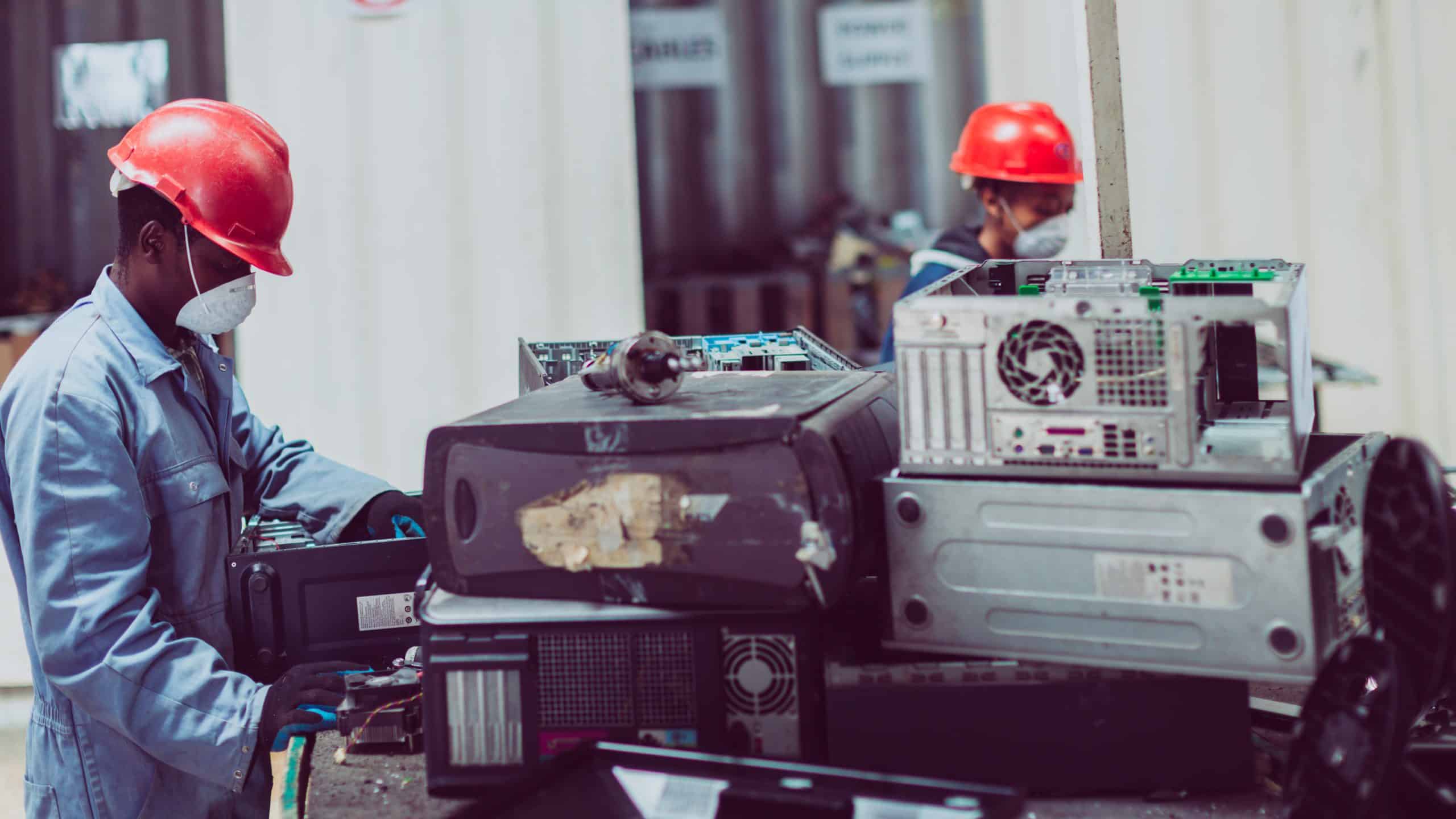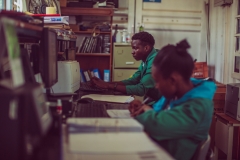Waste Electrical and Electronic Equipment Centre (WEEE Centre) undertakes e-waste recycling where it safely collects and dismantles e-waste to recover raw materials for recycling into new electronic products.
WEEE Centre has safely and successfully processed over 10,000 tons of e-waste since 2012 and has eight collection centers spread across the country for expanded e-waste collection. Through these safe disposal services, the company has prevented 14,400 tons of CO2 emissions. Additionally, their innovative ways of handling e-waste in Kenya have been adopted in Uganda, Tanzania, Rwanda, Burundi, Madagascar, Ghana, Nigeria, DRC, Eritrea, Ethiopia, Malawi, South Africa, Egypt, and Liberia.
Through the KKCF funding, the company is setting up a training centre that will equip the youth (especially young women) in Kakuma and Kalobeyei with digital literacy, ICT repair and maintenance of electronics, computers and solar equipment, thus providing new income streams for the host community and refugees.
Visit the WEEE website here: https://weeecentre.com/
Company FAQs
What attracted you to the Kakuma/Kalobeyei area? Why did you choose to apply for the KKCF funding?
KKCF funding presented an opportunity for WEEE Centre to reach the refugee and host communities with an e-waste management programme, with the added potential for job creation among the youth.
The growing consumption of ICT and solar powered devices in Kakuma and Kalobeyei by refugee communities and humanitarian organisations, has led to the generation of significant amounts of e-waste, which if it is not managed in a manner that is environmentally friendly, it can become toxic to public health and the environment .
There is a large population of unemployed youth in Kakuma and Kalobeyei that could be engaged to earn decent incomes from e-waste management by collecting, repairing and recycling it.
What do you look forward to doing in Kakuma/Kalobeyei? How do you see your business growing in the next 5 years? What challenges have you had to overcome?
Our operations will concentrate on training agents, public awareness and e-waste management. The trained agents will also act as collectors
and repairers of electronic devices.
Getting qualified refugees and local community members to serve as core project team members has been a challenge. We have had to work with some staff members from Nairobi to train and empower locals before they can take full control.
What are some of the foreseeable impacts in the Kakuma and Kalobeyei area following your interventions?
We anticipate a large population of young people with hands-on skills for the repair and maintenance of electronic devices, as well as sales agents. The intervention will also enhance digital skills, especially among the youth leading to better employment opportunities and economic empowerment.
What advice would you give other SMEs in fragile/difficult situations, with refugees and their host communities?
Empowered agents from the local communities are the key to the success of any business initiative. They adapt easily to the local population and are more appealing to potential customers because ultimately they are familiar with the local culture, and their networks are intact.

